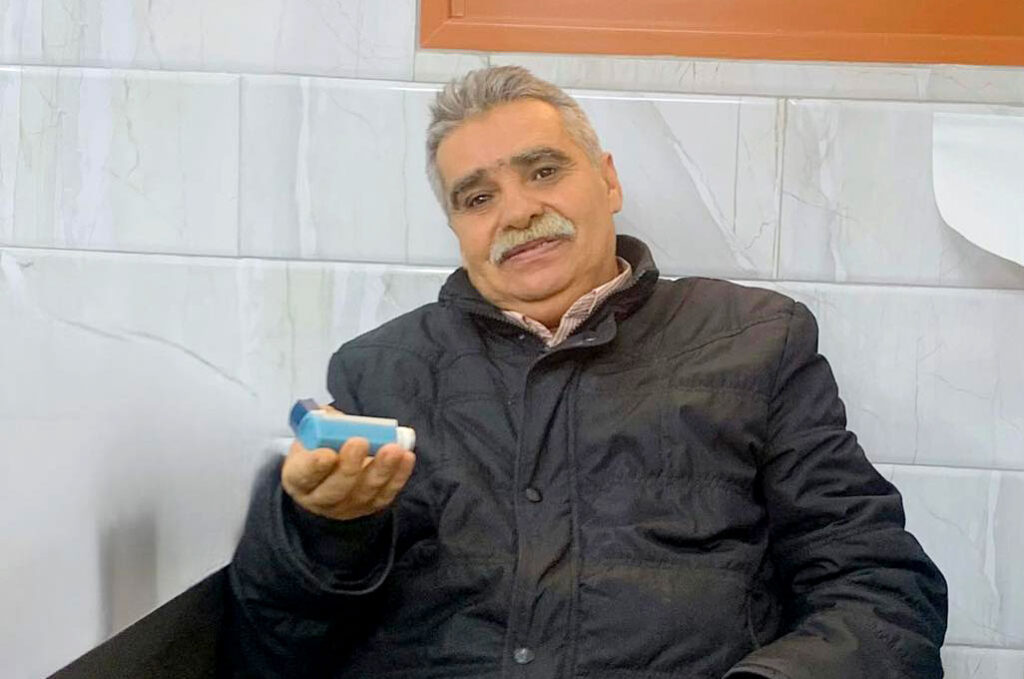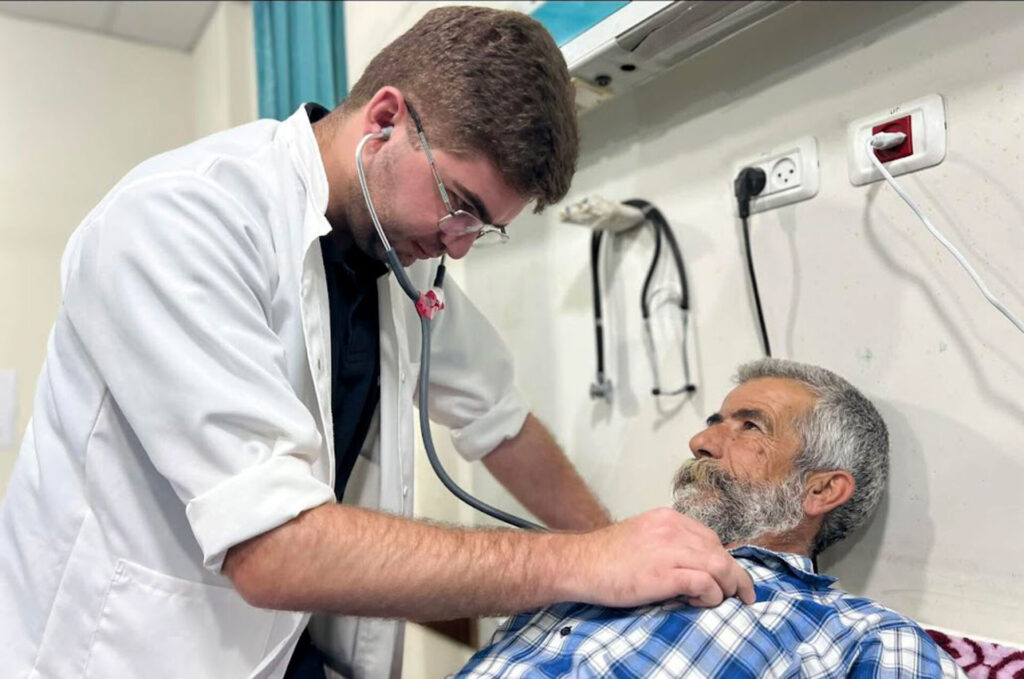Feb, 2009
Haijar is a frequent visitor for medical treatment at the municipal health clinic in Beit Awwa, a Palestinian town in the southern West Bank and a 40-minute drive west from Hebron.
Despite only being 51, she is one of many Palestinian women who have problems with blood pressure and joint pain. But when you learn she has been pregnant over 20 times and is a mother of 13, you are even more surprised by her vitality, and charmed by her beautiful smile.
“I come here to check my blood pressure every month,” Haijar explains after nurse Hamsa has taken off the inflatable cuff from her arm.
The equipment needed to measure blood pressure is a novelty at the medical clinic, donated through the USAID-funded Hanan project. Anera is a partner in this effort to improve the availability of health services and provide counseling and health information for Palestinian refugee women and other women of reproductive age, to upgrade infant care and child nutrition, and improve the management of common childhood illnesses. Through Hanan, the clinic staff receives on-site health education in a number of fields to better prepare them to serve the 17,000 inhabitants of Beit Awwa. The program also provides them with other essential medical equipment, medicines and consumables. One important training subject is hygiene.
In Beit Awwa, Hanan cooperates with another Anera project, the Emergency Water And Sanitation (EWAS) Program, which also receives funding from USAID. Thanks to EWAS support, the clinic staff has access to good quality water to wash their hands including in the emergency room. Before this project, staff did not even have access to water or even a hand basin. Instead, staff members had to use the communal bathroom.
The project has also meant other additions to the emergency room including tiled walls, which makes them easier to clean and increases the sanitary quality of the clinic. A 150-m3 water cistern has been rehabilitated while several smaller water containers, a water pump, a solar/electrical water heater and a water filter have been installed. These all provide clean potable water to patients and staff and help keep the medical instruments sanitized.
Doctor Hisham has noticed a significant improvement in the clinic’s operations following implementation of the project. “We can now offer higher-quality medical treatment to a greater number of patients, thanks to the new health care training and the medical clinic equipment,” he says. “I have also noticed a greater degree of trust on the part of our patients, especially when they see the clinic is clean and hygienic. More patients visit us to receive health care. Before we started working with Anera, we couldn’t maintain the sanitary quality of the clinic we wanted. We spent a lot of time boiling water to sanitize the clinic. And the water supply was infrequent and not very clean.
To date, two West Bank medical clinics have benefited from receiving water and sanitation treatment through EWAS, and five more are due to receive similar improvements. Anera continues to evaluate other clinics, though implementation of further improvements will depend on approval from USAID.
The cost of renovating the medical clinic in Beit Awwa was $13,000, and it generated 30 days of employment. Comprehensively, the Hanan project works with 68 clinics and hospitals in the West Bank and Gaza. An additional 50 health care clinics are waiting for approval to participate. The entire project budget is $21 million.
Anera receives funding from the U.S. government and international agencies such as USAID and the United Nations International Fund for Agricultural Development to support populations in need in the West Bank, Gaza, Lebanon and Jordan. The Hanan and EWAS projects represent two particularly successful efforts to improve the quality of health care for Palestinian women and children in the West Bank and Gaza. With continued medical aid support from our institutional partners, Anera can continue to assist underserved communities.


